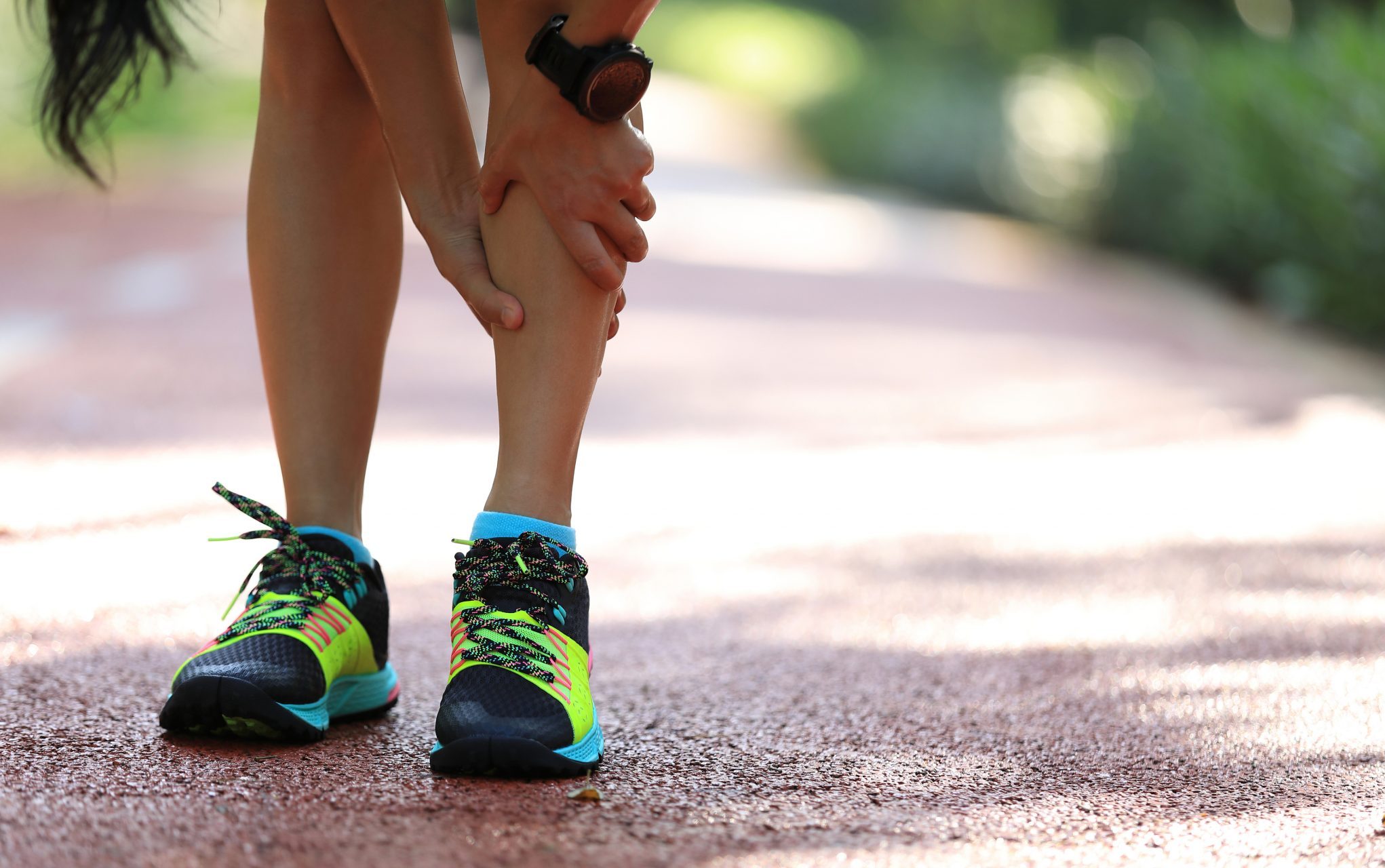FitBit, Garmin, Honor, Xiaomi, if you’ve been Googling fitness trackers lately, you’ve probably heard all these names and more. But are you also wondering, are they worth the money? And will they really help me get fit?
Well, so did we! That’s why, we did a little research, asked around, and are now ready to reveal our findings. Keep reading to find out all about:
- What is a fitness tracker?
- What features does a fitness tracker have?
- What to expect when you start using a fitness tracker?
So, let’s go!
What’s a fitness tracker and why do I need one?
 Unless you’ve been living under a rock for the last ten years, you’ve probably seen some of your friends wearing these handy little devices on their wrists, and wondered – what does it do exactly?
Unless you’ve been living under a rock for the last ten years, you’ve probably seen some of your friends wearing these handy little devices on their wrists, and wondered – what does it do exactly?
Fun fact! The first modern fitness tracker was the FitBit, released in 2009. Of course, it’s predecessors, such as the humble pedometer. Have been around a lot longer.
A fitness tracker is a small device that attaches to the body and monitors a number of factors related to health. Some work better than others, but here’s some of the key features you can expect to find:
Step counter
Like the pedometer, a step counter counts how many steps you make. Probably you’ve heard about the benefits of walking, so how do you know you’re doing enough? That’s where the step counter comes in. Depending on which brand you choose, your counter can monitor not only steps but direction and speed too.
Exercise tracker
But fitness isn’t all about the steps. Many fitness bands also track other activities too. You can add running, cardio, dancing, cycling, and more, depending on the brand you buy. For some, exercise activity is automatically calculated, for others, you’ll need to enter this data manually.
Vital sign monitor
Keeping track of your health isn’t just about movement. By tracking your vitals, such as pulse during exercise and at rest, you can evaluate your heart rate more effectively. Some devices also offer temperature readings and perspiration tracking to see how hard you’re working out. By combining this data and your workout data, you can get a better picture of your overall health.
Sleep recorder
In the modern world, it can be hard to switch off, and more often than not, we are not getting enough sleep. Understanding your sleep cycle is key to getting enough rest. But how do you know how much sleep you’re getting and what kind? Your fitness tracker can record this data and give you feedback on deep and light sleep, so you know precisely how well-rested you are.
Calorie tracking
Although it’s not always about the number of calories you take in, rather it’s the type, it’s still important to avoid eating way too many. Or too few. Many fitness trackers have a calorie tracking feature to help you monitor your intake vs outtake levels.
Sync with your devices
No fitness tracker works alone. The best way to use one is to install the accompanying app on your phone so that you can check feedback and best align your goals with your activity level. You might also find that some devices are compatible with other tools, such as smart scales that track your body weight and fat distribution to give a more complete picture of your health.
Although many devices are similar, each – from FitBit to Garmin and more – has its own unique features. Knowing which one to choose often depends on which features you really need.
Why are fitness trackers so popular?
The fitness tracker industry has really taken off in the last few years. It is reportedly set to be worth an estimated $63.48 billion by 2027! Wow! But why have these tiny little monitors got the world in their grasp?
It’s simple. Statistic and numbers help define your fitness level and monitoring them, helps you know if you’re meeting your specific fitness targets without the wait.
Knowing about your activity level makes you more active. Whether that’s getting in your 10,000 steps, sleeping 8 hours, or making sure your heart rate an acceptable level. But do they actually make you more active?
The truth is, according to the scientists, the jury is still out. Modest results from studies show that fitness bracelet users are slightly more active than the control group, but not enough to give a solid yes or no answer.
What can I expect from my fitness tracker? Pros and cons
 Before you go out and buy, you want to make sure that it’s worth it. Here’s some of the pros and cons you’ll get when you buy a fitness tracker.
Before you go out and buy, you want to make sure that it’s worth it. Here’s some of the pros and cons you’ll get when you buy a fitness tracker.
Benefits
Comprehensive overview of your health
When it comes to our health, it can be hard to estimate. That applies whether it’s how much exercise we’re doing, how much we weigh, or even how much we eat. But this data matters. Keeping a check on the real numbers gives us a better understanding of how we’re doing, not how we think we’re doing.
Data when you need it
Ever go to a doctor’s appointment only to be asked about your activity levels or calorie intake. It’s easy to tell an accidental lie. After all, how do you know? Wearing a fitness bracelet takes the guesswork out of it, leaving your doctor with facts, not fiction.
Push yourself to be motivated
It might be cold outside, and that winter walk seems unappealing. But when you look down at how few steps you’ve done, you might just change your mind. We’re competitive creatures, always striving to do better. That’s why, when it comes to numbers, just seeing them helps push us forward.
Fitness progress
Nothing motivates us like seeing how far we’ve come. Fitness tracker apps often have handy data tracking charts that illustrate in graphic detail all the progress you’ve made. Whether it’s more steps, fat loss, weight loss, and more.
Find your optimal program
When it comes to creating our diet and exercise programs, it can be hard to pinpoint what actually works for us. Fitness trackers can help by monitoring when you’re most active and which activities work best for you.
Cons
Accuracy
Not all fitness trackers are created equal. And what that means is they have varying degrees of accuracy. Studies have been done to evaluate this, and found they are reasonably accurate, but ‘reasonably’ isn’t perfect and that always leaves some room for error. How much depends on which band you choose. It’s always best to check your results with a doctor to ensure they are accurate.
Loss of interest
Any new gadget is fun for a while, and fitness trackers are no different. After some time, you may find yourself bored with it and forgetting to wear it. If monitoring your overall health is your goal, this is problematic as you won’t get a full set of results.
Obsession with numbers
Caring about your health is great, but what about when it becomes all about the numbers? Well, that’s bordering on obsession. For those prone to eating disorders, such as anorexia and orthorexia, fitness trackers might have a negative impact on turning a healthy plan into an obsessive one. Even for those without disorders, it’s vital not to become too consumed with facts and figures, and look at the overall picture – how you feel?
What’s an alternative to a fitness tracker?
If you’re not too thrilled about wearing a wristband, then probably you’re wondering is there a good alternative to a fitness bracelet? Yes, there is. And these come in 3 forms:
- Apps. Just download an app on your smartphone and go. The pro of this method is you don’t need any extra tech. The con is that it’s not so great at tracking how much activity you’re doing automatically, and you may need to manually enter data.
- Rings. Slip it on your finger and go. Like the wristband, this wearable piece of tech is handy for keeping track of how much activity you’re doing, but it’s not as popular as the bands yet.
- Clip-ons. Slip it into your waistband and go! Clip-on devices have been around for a while. Tracks steps and calorie data but not so great at heartrate, this is a wrist-only function.
How much should I expect to pay for my fitness tracker?
There’s a tracker for every budget and style. It’s true. So, whether you want to spend $50 or $250, there’s a tracker for you out there. However, like any technology, the more you spend, the more you get.
If you’re a casual user there are some great budget options out there that work perfectly fine for your needs. But, if seriously into sports and fitness and want to make an investment, then it might be better to go up the price chart a little.
To get the most for your money, look for a decent display, heart rate monitor, and step counter as a minimum. Be sure to check reviews before you buy, because even the most expensive option on the market might have some nuances to be aware of.
Is it worth it? What you’ll notice when you get a fitness tracker
 It took a long time for me to decide to get my first fitness tracker. I questioned, “did I really need it? will it be a total waste of money? and would it really help me keep healthy?” That’s why I chose one of the lower-priced options to see if it would do the job while saving my budget. It did, and here are the top 5 things you’ll notice when you get a fitness tracker.
It took a long time for me to decide to get my first fitness tracker. I questioned, “did I really need it? will it be a total waste of money? and would it really help me keep healthy?” That’s why I chose one of the lower-priced options to see if it would do the job while saving my budget. It did, and here are the top 5 things you’ll notice when you get a fitness tracker.
You will become hooked on numbers
When I first put the band on, it was like opening a whole fascinating world of data, all right there on my smartphone. I spent the next few days exploring every feature and became obsessed with data – how many steps, how much did I sleep, what is my heart rate, right now? Things I would never have given a single thought to before. And you will too.
For those first few days, the novelty of having all that data accessible is empowering. And this experience can last for months, even. You’ll become hooked on the numbers. The trick? Not letting them rule your life.
Notice how much or how little you’re sleeping
As a mom of two under five, if I get a full eight hours uninterrupted sleep, I’m exceptionally lucky. But putting on a fitness bracelet made me realize just why I felt so tired in the mornings. Between falling asleep too late and waking up too early, I definitely wasn’t making up those hours.
No matter how much you think you’re sleeping right now, the figure you’ll see on your device will be different and this is a huge wake-up call. After all, sleep is so important for your health.
Be surprised or disappointed by your current activity level
Whether you think you’re doing loads of steps and you’re not, or the opposite, when you first put on your fitness bracelet all becomes clear. When I first started using my bracelet wasn’t the amount I was walking outside. Instead, it was how many steps I was doing inside the house on morning clean up. Turns out there’s some benefits to kids leaving their toys everywhere.
You’ll notice this too. You’ll be surprised at how many or how few steps you’re doing. And that brings us to the next point.
You’ll try to ‘hack’ your results
If you’re disappointed in the amount of activity you’re doing, the next thing you’ll do is try to hack those results. As I said it’s all about the numbers, so in the first few weeks, you may find yourself desperately trying to get to that 10,000-step mark. Even if it means pacing the house for half an hour.
This is normal. And in fact, is part of the motivation that can help you to reach your fitness goals. So, don’t be too hard on yourself.
And learn to live with it
The initial fascination is a great way for kickstarting your fitness routine. It helps you monitor your health and fitness levels, and reach your goals. But in the long-term, too much is a bad thing. That’s why you will learn to live with your fitness band. Eventually, you’ll not be so obsessed with the stats and only check when you need to.
How to decide which fitness tracker to buy?
 Ready to dive in and purchase your first fitness tracker? Great! You’ll love it, but first things first, how do you make that choice? Ask yourself these questions:
Ready to dive in and purchase your first fitness tracker? Great! You’ll love it, but first things first, how do you make that choice? Ask yourself these questions:
How much can I afford to spend? Yes, the model up looks nice, but if you can’t afford it, put it back on the shelf.
What functions do you need? State-of-the-art is great, but if you only need a step counter, why waste the money?
What’s your motivation for buying a fitness band? This will help you decide which type you need. Some are more focused on heartrate tracking, other steps, which do you need?
Do you plan to take your phone everywhere? Some devices fully only work when connected to your phone. Do you plan to bring it with you when you work out?
What type of activity do you enjoy? Walking, running, kickboxing, something else? Some bands work better than others for a diverse range of activities, not just walking.
Fitness trackers: worth it or not?
Fitness bracelets are a handy way to keep track of your health, whether you’re a serious athlete or casual walker. They are a great little tool. But which one you need to meet your needs, well, that’s up to you?






































